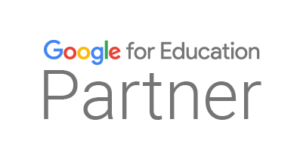As the education landscape continues to evolve at an unprecedented pace, 2025 marks a pivotal year for schools across the UAE. Guided by national visions that champion innovation, sustainability, and digital excellence, the country’s education sector is reimagining how learning is delivered and experienced.
For educators, school leaders, and policymakers, understanding the emerging trends is key to building agile, inclusive, and future-ready institutions. The following developments highlight how UAE Education trends are shaping a new era of education.
1. Student Wellbeing Takes Centre Stage
One of the most significant shifts of the new UAE education trends is the growing emphasis on student wellbeing. Beyond academic outcomes, schools are recognizing the critical role of emotional and social development in shaping holistic learners.
Comprehensive wellbeing frameworks are becoming more prevalent, with initiatives such as counselling services, mindfulness programs and socio-emotional learning modules being introduced into daily routines. By creating safe and nurturing environments, schools are improving academic performance, attendance and overall school culture. This holistic approach is helping shape resilient, empathetic and confident individuals who are prepared for the future.
2. Sustainability in Education Becomes a Strategic Imperative
The integration of sustainability education within the UAE’s Net Zero 2050 strategy is profoundly amplified by the adoption of paperless classrooms. Moving beyond the theoretical integration of environmental themes, the shift to digital materials, assignments, and administrative processes embodies the very principles of resource efficiency and waste reduction that schools are striving to teach.
By minimizing paper consumption and associated resource use, schools not only reduce their carbon footprint but also create a modern, tech-enabled learning environment that inherently fosters digital literacy, collaboration, and problem-solving skills essential for students who will drive the UAE’s future green economy and contribute meaningfully to its ambitious national climate goals.
3. Hybrid Learning Models Mature
Hybrid learning is no longer viewed as an emergency response. It has evolved into a robust and flexible model that integrates the advantages of in-person and online learning. UAE schools are using hybrid frameworks to provide continuity during disruptions, broaden access to resources and offer students greater autonomy in how they learn.
When implemented strategically, hybrid models enable more personalized instruction, allow teachers to diversify delivery methods and enhance overall learning resilience. For schools, this flexibility translates into a more agile academic structure that is ready to adapt to changing circumstances.
4. Gamification Elevates Student Engagement
Gamification and game-based learning are transforming how students interact with content. From curriculum-aligned educational games to simulation-based activities, this approach leverages students’ curiosity and love for challenges.
By incorporating elements such as points, levels and real-world problem-solving scenarios, educators are finding innovative ways to boost motivation and deepen understanding. Rather than replacing traditional teaching methods, gamification amplifies them and creates classrooms that are both dynamic and impactful.
5. Digital Citizenship and Cybersecurity Awareness Strengthen Digital Readiness
With technology embedded into nearly every aspect of learning, schools are placing greater emphasis on digital citizenship education. Educators teach students to navigate the online world responsibly, with lessons covering privacy, cyberbullying, ethical content sharing, and digital footprints.
Cybersecurity awareness is equally critical. As digital ecosystems expand, protecting students and school infrastructure from online threats becomes a shared responsibility. By instilling strong digital ethics and security practices early on, schools are preparing learners to be responsible and informed participants in the digital age.
6. Microlearning Adapts to Modern Learning Behaviors
Microlearning, which focuses on short and targeted learning modules delivered through videos, quizzes or mobile content, is gaining traction in UAE classrooms. As attention spans shift and students seek flexibility, microlearning provides an effective way to reinforce concepts, aid revision and offer just-in-time learning support.
Teachers are integrating these bite-sized lessons into broader curricula to make learning more accessible and adaptable. When used strategically, microlearning complements traditional instruction and supports differentiated learning pathways.
Looking Ahead
The UAE education trends of 2025 reflect a dynamic and future-oriented vision for UAE schools. By prioritizing wellbeing, sustainability, hybrid learning, gamification, digital citizenship, microlearning and continuous professional development, schools are building ecosystems that are innovative, inclusive and resilient.
For school leaders, the challenge and opportunity lie in weaving these trends strategically into their academic and operational planning. Those who do will not only meet the evolving expectations of learners and parents but will also position their institutions as frontrunners in shaping the future of education.




 1st Floor, H-31, Sector 63,
1st Floor, H-31, Sector 63,